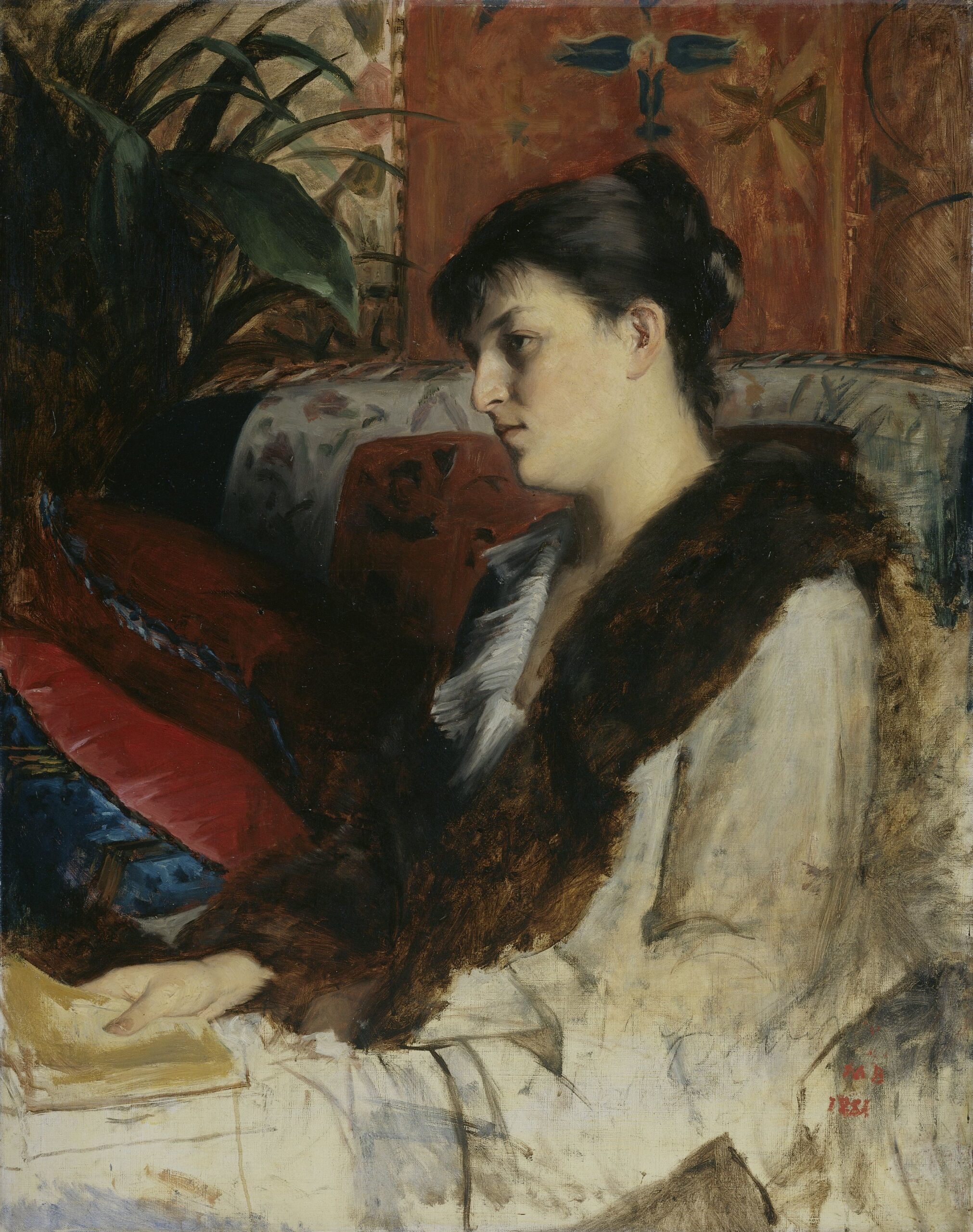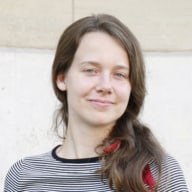Marian van der Pluijm: Tinkling Lungs
Eighteen young writers from Flanders and the Netherlands have brought nineteenth-century artefacts from the Rijksmuseum to life. They wrote their stories in response to the question: what do you see when you look at these objects through the lens of impending doom? Marian van der Pluijm created an audio story in response to Marie Constantine Bashkirtseff’s painting The Artist’s Sister-in-law. ‘I’d like to get her to say something, I’d like to elicit a response from her, ask the kind of question that demands an answer.’
 Marie Constantine Bashkirtseff, The Artist’s Sister-in-Law, 1881
Marie Constantine Bashkirtseff, The Artist’s Sister-in-Law, 1881© Rijksmuseum Collection, Amsterdam
Tinkling Lungs
(AUDIO STORY – TRANSCRIPTION)
God, grant my prayer! Preserve my voice; should I lose all else I shall have my voice.
Paris, 1881. Through the studio window I spot the Ukrainian painter Marie Bashkirtseff. Blonde curls worn in an up-do, a young but emaciated face and an apron tied over her dress. She coughs. Her sister-in-law wants to get off the sofa to hand her a glass of water, but Marie gestures for her to stay seated. The portrait isn’t done yet.
Blushing before my own people; feeling their kindness in speaking louder! In the shops I tremble every minute, but that is not the worst; what tricks am I not obliged to use with my friends to hide my infirmity; oh, it is too cruel, too terrible, too awful!
The tuberculosis that has settled in Marie’s right lung has spread to her vocal cords and ears.
“Do you know,” said I to the doctor, “that I spit blood, and ought to be taken care of?”
“Oh, Mademoiselle,” said Walitzky, “if you persist in sitting up every night till three o’clock in the morning you will get no end of diseases.”
Once upon a time Marie had a clear voice. She received training from voice teachers all over Europe, was photographed in folk costume with large bead necklaces and sashes. Becoming an opera singer was her biggest dream. Standing in the conservatory, at a family celebration, she could picture the lace evening dresses. Her aunt’s foot tapping against the chair leg. Her mother with her eyes closed.
Preserve my voice.
I ring the doorbell of Académie Julian, where she has her studio: still the only art academy to admit female students. In front of the white façade, I loiter beside a lamp post with billboards calling on the people of Paris to stop spitting in the street and so curb the spread of tuberculosis. Europe is in the grip of a pandemic.
Marie, pale and focused, ushers me into the building without so much as a glance over her shoulders. Unfinished paintings covered in white sheets line the corridor, alongside an anatomical model and those stools made of wicker. I watch Marie’s back. It moves up and down. Her breathing is irregular.
“Why did you start painting?” I ask her, but she doesn’t reply. All I hear is her breath.
I’d like to get her to say something, I’d like to elicit a response from her, ask the kind of question that demands an answer. I want to know what her voice sounds like. But her paintings are all that Marie left us.
Painting and the models! I do not always hear what they say to me, and I tremble lest they should speak. When alone I am seized with giddiness and my tongue refuses to say, “Speak a little louder, I do not hear very well!
I find her words in her diary, which her mother published after her death.
In these pages you see my inner self. But outwardly I am quite another person. You would say I had never known an annoyance, that I am used to be obeyed by men and things.
Throughout her illness, dozens of doctors put their stethoscopes on Marie’s chest to listen to her lungs. They must have known it like no other: what she sounded like.
The French physician René Laennec observed something remarkable. When he heard tuberculosis patients speak, it seemed, and I quote, as if “every word is followed by a sort of tinkling, like that of a small bell or glass that is finishing resounding”.
My classmate has already sold three or four things; in fact, she is launched. And I? I am in a consumption.
*
Marie: Margo van Hilvoorde
Narrator: Marian van der Pluijm
Featuring passages from: The Journal of Marie Bashkirtseff, Translated, With an Introduction, by Mathilde Blind












